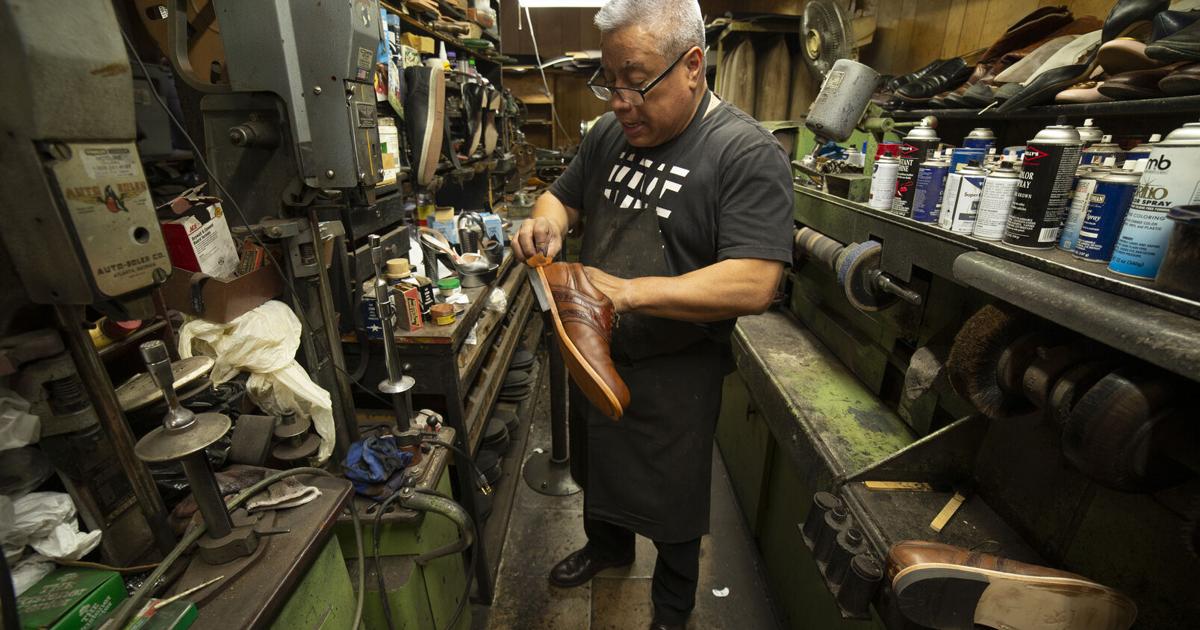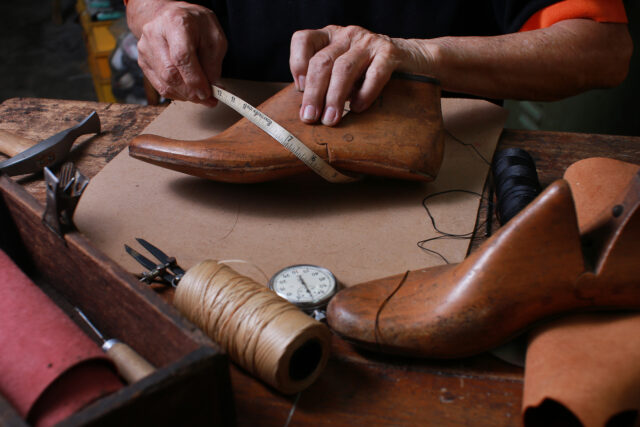For centuries, shoe repair has been an integral part of society. From cobblers to modern-day craftsmen, the history of this time-honored tradition is filled with stories and techniques that have evolved over generations.
From the early tools used to mend shoes to the innovative methods employed today, join us as we explore the fascinating history of shoe repair and trace its evolution from antiquity to now.
Introduction to Shoe Repair: A Look at Its Origins

The history of shoe repair dates back to the earliest civilizations, with evidence of cobblers and leatherworkers found in ancient Egyptian tombs. Over the centuries, these skilled artisans have perfected their craft and techniques for restoring shoes, boots, sandals, and other footwear to like-new condition.
This article takes a look at the origins of shoe repair and how it has evolved – from its humble beginnings as a necessity for protecting feet to its current status as an essential part of personal style. Well also explore some of the different methods used by modern shoemakers today to keep our shoes looking their very best! From stitching together layers of materials to applying protective coatings or repairing worn soles, each technique is unique but all share one common goal: To extend the life of our beloved pairs.
Developments in Shoe Repair Techniques Throughout the Ages
The history of shoe repair is a long and storied one. Throughout the ages, people have sought to find ways to extend the life of their footwear by repairing them instead of replacing them. From leather mending techniques used over 3,000 years ago in ancient Egypt and Greece to modern advances in materials science allowing for more durable and stylish repairs, let’s take a look at how shoe repair has evolved.
In medieval times, cobblers used rudimentary tools such as knives and awls to piece together shoes from individual pieces of leather. This allowed craftspeople to make custom-fitted shoes that were both comfortable and fashionable.
As technology advanced further into the 19th century, machines began to be used for production purposes like cutting soles or lasting uppers onto a last (a type of form). With the advent of rubber vulcanization processes during this period too came improved weatherproofing that drastically reduced wear on shoes and extends its lifespan significantly longer than before.
By the 20th century shoe repairs had become much easier thanks largely to synthetic materials such as plastics which made it possible for shoemakers to produce mass quantities quickly with little effort required in terms of handcraftsmanship or quality control measures taken for each pair produced was up-to-standard enough for use by consumers worldwide.
How Modern Technology Has Influenced Shoe Repair Practices

Modern technology has revolutionized the shoe repair industry, allowing for more efficient and precise repairs. From specialized machines that can cut and shape leather to precision laser engraving tools used to create intricate patterns, modern technologies have allowed shoemakers to design shoes with greater detail and accuracy than ever before.
With the help of computer-aided design (CAD) systems, it is now possible for craftsmen to customize shoes according to individual specifications and tastes in a matter of minutes. In addition, new materials such as synthetic fabrics are being utilized to provide extra durability while still maintaining comfort. These advances in technology have opened up a world of possibilities when it comes to customizing footwear – whether you’re looking for a pair of stylish dress shoes or an ultra-lightweight running shoe designed specifically for your foot size and shape!
Conclusion

Shoe repair has been an important part of human life for centuries, dating back to the earliest civilizations. From cobblers and leather workers to modern technology-driven shoe repairers, this craft has evolved to meet the needs of customers throughout history. The skilled craftsmanship and attention to detail that was so valued in traditional cobbler shops is still a major factor when it comes to modern shoe repairs, as demonstrated by today’s trusted shoe repairers who have dedicated their lives to perfecting this time-honored art form.
No matter what changes come our way, one thing is certain: the importance of quality shoe repair will remain forever timeless.




